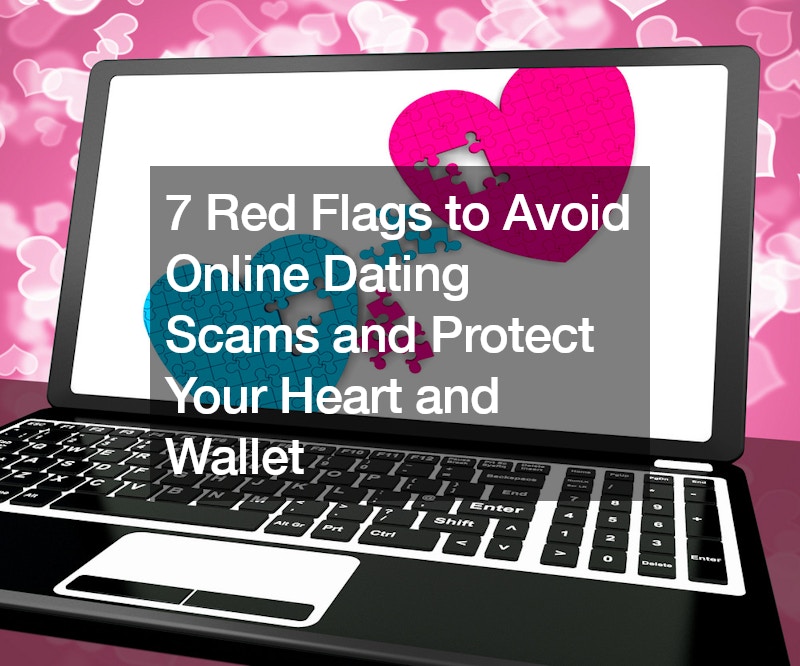Disclaimer: Miele Guide. This site provides fashion and lifestyle content for informational purposes only.
With the increasing prevalence of online dating, finding love on the internet has become more common than ever. Statistics indicate that a significant percentage of new romantic relationships begin on dating sites, making these platforms popular venues for meeting potential partners. However, as with any online activity, there are risks involved, particularly the threat of online dating scams. Unscrupulous individuals often take advantage of vulnerable people seeking companionship, leading to financial loss and emotional distress. To protect your heart and wallet, it’s essential to be aware of these seven red flags.
1. Too Good to Be True
If you find yourself matched with someone who is significantly younger or more attractive than you, it’s wise to proceed with caution. While age and appearance gaps are not inherently suspicious, scammers often use attractive photos to lure their victims. They may create a persona that seems perfect and shower you with attention to quickly build trust. Remember, if it seems too good to be true, it probably is. Genuine connections develop over time, and mutual attraction often extends beyond superficial qualities.
2. Damsel in Distress
Scammers frequently play on the innate desire to help others, particularly among men who take pride in being protectors. If your online match shares a sob story about financial hardship or personal crises and hints at needing assistance, it’s a red flag. Even if she doesn’t directly ask for help, mentioning her troubles could be a setup for future requests. Be wary of anyone who quickly divulges tales of woe and seems overly reliant on your support. Real relationships are built on mutual respect and independence, not dependency.
3. Reluctance to Video Call
One effective way to verify someone’s identity is through a video call. While initial messaging and phone calls are good starting points, moving to a video call should be a natural progression in getting to know each other. If your match continually makes excuses to avoid video chatting or appears hesitant to show her face, this is a significant warning sign. Scammers often use fake photos and identities, and a video call can quickly reveal discrepancies. Aim to suggest a video call within the first few online conversations to confirm she is who she says she is.
4. Rapid Advancement
Be cautious if your online match wants to escalate the relationship quickly. Scammers often push for rapid advancement, trying to meet in person immediately or moving to intimate conversations prematurely. This tactic can create a false sense of urgency and connection, making it easier to manipulate you. Genuine relationships progress at a comfortable pace for both parties. If she agrees with everything you say, showers you with excessive compliments, or quickly introduces sexual undertones, it’s a red flag. True connections require time and mutual effort to build trust.
5. Lack of Online Presence
Conducting a bit of research on your match can provide valuable insights. If you’ve had a few video calls and everything seems okay, it’s appropriate to look up her social media profiles and other online information. An authentic person will typically have a reasonable online presence, including friends, photos, and interactions. Be suspicious if her social media accounts look suspicious—such as having many foreign contacts, few genuine interactions, or only provocative photos. A lack of a substantial online footprint can be a sign of a fabricated identity.
6. Keep Personal Information Private
In the initial stages of online dating, it’s crucial to protect your personal information. Sharing your full legal name, home address, email address, or phone number too soon can expose you to identity theft and other crimes. Scammers often use personal details to orchestrate elaborate schemes and exploit their victims further. While building a connection, provide only general information and maintain a level of anonymity until you are confident in her intentions and authenticity.
7. Use Reputable Dating Sites
With the myriad of dating sites and apps available, choosing the right platform is essential for your safety. Opt for well-known, reputable dating sites that implement stringent security measures to protect users. These platforms typically offer features like profile verification, reporting, and blocking of suspicious accounts. Avoid using free or obscure sites with minimal security, as these are often breeding grounds for scammers. A reputable site provides a safer environment and better support if you encounter any suspicious activity.
Bonus Tip: Trust Your Gut
Your intuition is a powerful tool in detecting potential scams. If something doesn’t feel right, no matter how much you want it to be, trust your gut. Feelings of unease or suspicion should not be ignored. Scammers are skilled manipulators, but your instincts can help you identify red flags before it’s too late. If an offer or situation seems too good to be true, it probably is. Protecting yourself emotionally and financially is paramount; taking a step back to assess a situation can save you from significant harm.
If you have serious concerns about the authenticity of someone you’ve met online, private investigation services can be a valuable resource. These professionals can help verify the identity and background of your potential match, providing peace of mind and additional protection.
Closing Thoughts
Online dating can lead to meaningful and fulfilling relationships, but staying vigilant and protecting yourself from scams is crucial. By watching for these red flags, conducting thorough research, and trusting your instincts, you can navigate the world of online dating safely and find genuine connections.
.

